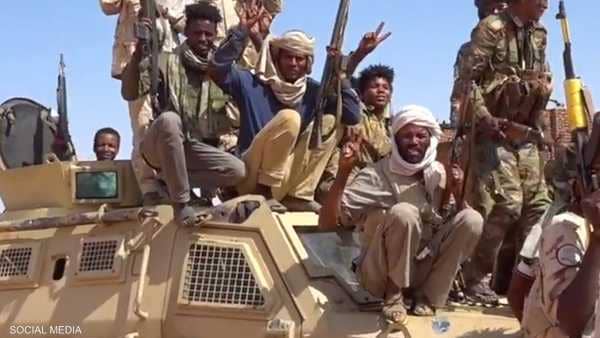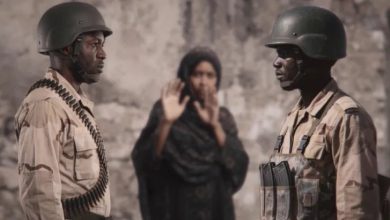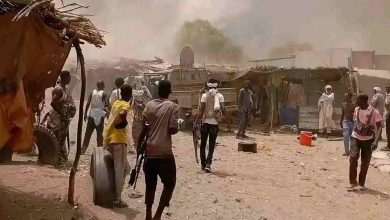“Militias” and the War of Rumors… Plan (C)

Sudan Events – Agencies
“We are now inside Wad Madani”…”Only a few hours and we will enter Dongola”…”All forces are heading to Shendi and the north now” “Member of the Sovereign Council, Lieutenant General Yasser Al-Atta, was hit by a drone strike.”
All of the above are merely dreams and wishes circulating in the minds of militia elements and their few supporters, as well as in the minds of those misled by drugs and magic from the elements of “Shafshafa” and the terrorist gangs of the “Al-Daqlo” family. These belong to the realm of psychological warfare and rumors, often spread by the militia’s media rooms based in the UAE, Nairobi, Kampala, and Addis Ababa, with the aim of confusing the military or psychological situation of citizens or the armed forces and their allies. Previously, these rumors had a significant counterproductive impact on the battlefields, but for over a year, the situation in the battlefields has changed, and the Sudanese army now has the upper hand in all theaters of operation, whether in the island region, Darfur, or Khartoum.
Collapse of Morale:
After successive defeats dealt to the militia, its media rooms shifted tactics. With rising desertion rates among its members and gangs, they started resorting to raising the morale of their forces, which had completely collapsed. The billions of dollars from the “UAE of Evil” and its weapons had no effect in changing the situation on the ground, and the militia’s previous victories turned into countless defeats.
After losing hundreds of thousands of mercenaries to annihilation by the army, the militia turned to spreading rumors and attempting psychological manipulation. However, they failed completely, as what the army is currently doing to the militia in all theaters can be described as “ticketing them to the heavens,” as the members of the joint force of the armed movements in their videos after victories in Darfur operations often say.
“We’re Back in Madani”:
One of my friends called me in distress, shouting that the militia had returned to Madani after the army withdrew from it two days ago. I was very surprised by what he said and told him that this was just a rumor coming from the militia’s dark rooms in the UAE. I reassured him that they were currently packing their loot to leave Sudan and return to their home countries. I confirmed to him that many of them were seen at the Jabal Awliya Reservoir with their families, heading towards Darfur, and then leaving Sudan altogether.
The rumor of the militia entering Madani was not the first, nor would it be the last. A militia member (Hafiz Kabeer) posted a video a few days ago showing a force moving at night and claiming it was now at the entrance of the Northern State near Dongola, about to enter Dongola. Many rumors spread about militia forces moving near the Dabbah area as well. These rumors spread rapidly, often fueled by the citizens themselves, like wildfire. This, in many cases, has a significant negative impact on intelligence officers, who not only try to deny the rumors but at times also treat them as credible information and then seek to verify them, despite having the correct sources and information. They cannot ignore them.
A War Without Bullets:
Parallel to the ongoing war, which almost came to an end or is in its final stages, there is another type of war—a media war on social media platforms, where rumors and misleading information spread widely, causing anxiety, tension, and negative reactions among the citizens. In traditional battlefields, weapons are used to weaken the enemy and achieve battlefield victories. However, in other battles, rumors become a far more dangerous weapon, aiming to undermine morale, create discord, and distort the truth (without bullets or smoke), but they penetrate minds and hearts, sowing doubt and eroding trust.
Dr. Ismail Al-Hakeem, an expert in psychological warfare, notes in his article that with each advance made by the army on the battlefield, the tongues and pens of the militia and its supporters in the media and social media platforms become more active, spreading fabricated lies to undermine successes, distort victories, and use lies as a means to spread panic and fragment national unity.
The Smoke of Rumors:
Psychological warfare expert Dr. Ahmed Al-Mustafa affirms that when clashes between the militia and the Sudanese army escalate, the sound of bullets, artillery fire, and aircraft is not the only source of concern. The dense smoke of rumors and a flood of misleading information are far more dangerous and disruptive to Sudanese citizens. Rumors are among the most dangerous tactics employed by the militia through its dark media rooms, which are filled with experts in psychological warfare. In my personal opinion, their expertise seems to be well-acquainted with the Sudanese personality. Dr. Al-Mustafa supports the prevalence of rumors by citing accounts previously closed on social media, which were run by organized militia groups managing more than 3,000 fake accounts across social media platforms. These accounts were considered the sole source of information for millions of Sudanese citizens both inside Sudan and abroad, especially with the absence of official media.
The “Planted” Information:
This rumor war falls under a strategic tactic used by the militia since the outbreak of war in April 2023. Dr. Al-Mustafa explains that the militia’s misleading accounts have three methods to implement their strategy. The first is sending misleading messages or false information (“planted”) with the intention of discrediting it later to sow doubt in its credibility, such as spreading a rumor about the death of the militia’s second-in-command, Abdel-Rahim Daglo. When people rejoice, thinking the information is true, the militia then releases a video of the alleged “dead” leader, showing him full of joy, to exaggerate his image and abilities, portraying him as an invincible figure.
The most dangerous form of deception is the manipulation of images and videos, altering their content to incriminate the opposing side, framing them for crimes they did not commit. This includes fabricating a video of a Central Reserve Forces officer, which falsely implied that Tigray forces, in collaboration with the army, entered Madani. This video was denied by the police just a few days ago.
Rumors have become a defining feature of the ongoing war between the Sudanese army and the militia. The deadly weapons that pierce bodies are matched by hundreds of virtual bullets and misleading news that echo across the country.
Source: Asda’a Sudanese website



